|
 |
|
 |
| |
2011 |
 Next Year
Previous Year
Next Year
Previous Year
 |
|
|
| |
|
|
|
| |
Policies
and Practices 42
Colonialism, Resource Crisis and Forced Migration
The establishment of de facto political control by
the English East India Company in Bengal after the battle of Plassey
in 1757 inaugurated a period of gradual conquest of the subcontinent
leading ultimately to the establishment of direct imperial control
after the great Revolt of 1857.
Essay by
Subhas Ranjan Chakraborty
|
|
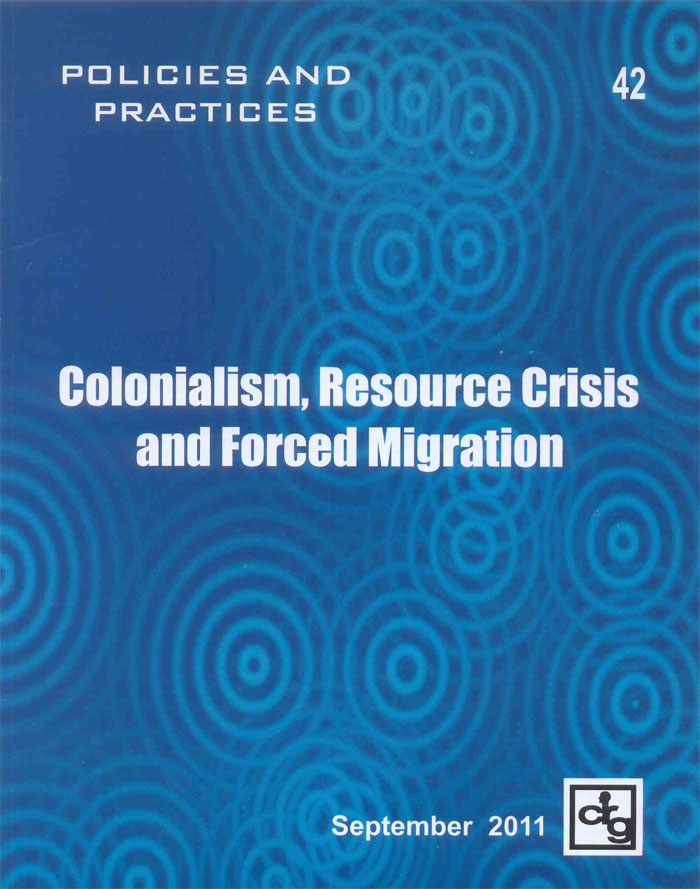 |
| |
|
|
|
| |
Policies
and Practices 41
Finding a Point of Return : Internally Displaced Persons in Sri
Lanka
Decades of ethnic conflict in Sri Lanka is said to have left around
800,000 Internally Displaced Peoples (IDPs). Some estimates put the
figure at more than one million people. On an average one in every
18 Sri Lankan is displaced, and in the Northern Province it is one
in every three persons. Apparently, the majority of displaced people
are mainly from the northern and eastern provinces. S. Y. Surendra
Kumar’s article “Conflict and Internal Displacement In Sri Lanka:
Concerns and Obstacles to Durable Solutions” delves into this issue,
finding the causes of displacement (from military campaigns to
developmental projects, from majoritarianism to uneven political
development); it also brings out the details of an ongoing process
of finding a solution for and rehabilitating the displaced people.
Fathima Azmiya Badurdeen in her article “Conflict,
Displacement and the Conditions for Sustainable Return: A Study from
the District of Trincomalee, Sri Lanka” does a thorough local-level
study to understand the larger ramifications of the problem of IDPs
and finding durable solutions for them. Trincomalee was chosen
because most of the returnees settled here in 2007. And from this
choice her argument flows. The mere administrative act of hastily
resettling displaced people often doesn’t mark a return to stable
life. It needs a more sensitive overhaul of property relations,
infrastructure, education and the condition of political
participation. Only then it can be called sustainable return,
Badurdeen argues.
Essays by
S. Y. Surendra Kumar and Fathima Azmiya
Badurdeenm
|
|
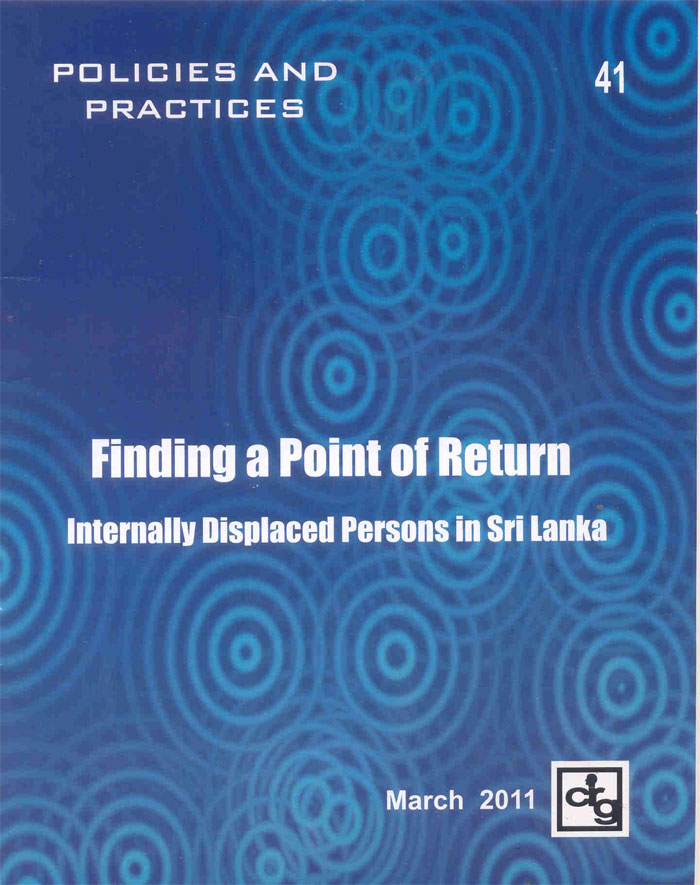 |
| |
|
|
|
| |
Policies
and Practices 40
Law and Democratic Governance : Two Studies from Europe
In the article “Tolerance Established by Law: The Autonomy of South
Tyrol in Italy”, Eva Pfostl examines the model of autonomy in
Trentino-South Tyrol in Italy. Her finds persuade her to argue that
the ‘success’ of this model lies in a system of tolerance
established by law, in the sense of a ‘mix’ of legal instruments and
institutions which preserve the different identities through
autonomy and, on the other hand, enable co-operation through
representation and participation. Jean-Louis Halperin in the article
“The Impact of Internationalization of Law upon the French Legal
Order” shows that though many jurists consider that contemporary
France---drawing on a long tradition of nation-building---has a
legal order creating its own rules, the country is involved in the
process that accommodates international law not only in foreign
affairs but also in its internal legal order.
Essays by
Eva Pfostl and Jean-Louis Halperin
|
|
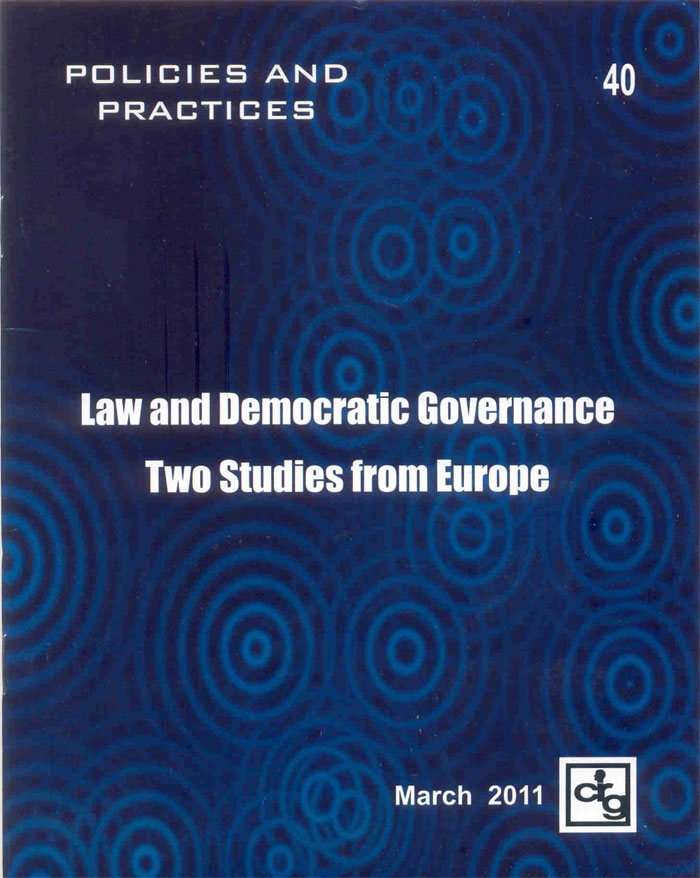 |
| |
|
|
|
| |
Policies
and Practices 39
Place of Poor in Urban Space
Through a case study of Mumbai city and LC resettlement colony, the
paper highlights the tribulation of poor in urban space. The
experiences of recurring and multiple marginalities and
vulnerabilities of poor in Mumbai city expose how the state, its
policies and agencies treat different classes of citizens
differently. Based on an empirical research and analysis of
experiences and observations, the paper highlights numerous problems
encountered by poor in slum settlement as also in relocation sites.
Essay by
Manish K Jha
|
|
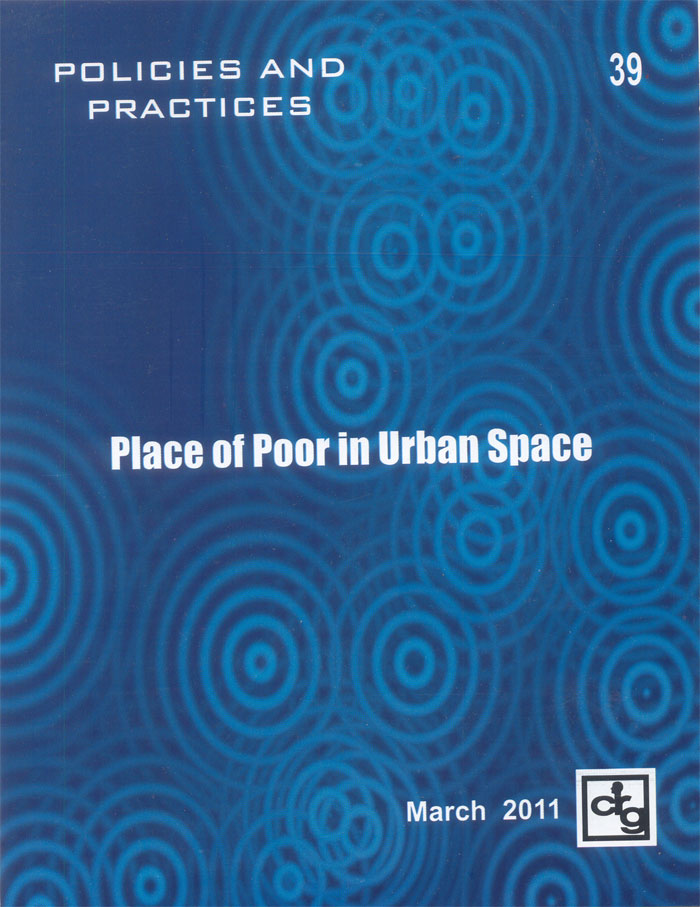 |
| |
|
|
|
| |
Policies
and Practices 38
Incomplete
Citizenship, Statelessness and Human Trafficking : A Preliminary
Analysis of the Current Situation in West Bengal, India
In this article Pascale McLean gets into the definition and the
characteristics of trafficking of girls and women. She explores the
grounds for a complete citizenship. The article then goes on to
examine whether statelessness is a de jure phenomenon or a de facto
reality. Before concluding, she studies the relationship between
trafficking and statelessness within refugee camps. Her data is
drawn from West Bengal.
Essay by Pascale McLean
|
|
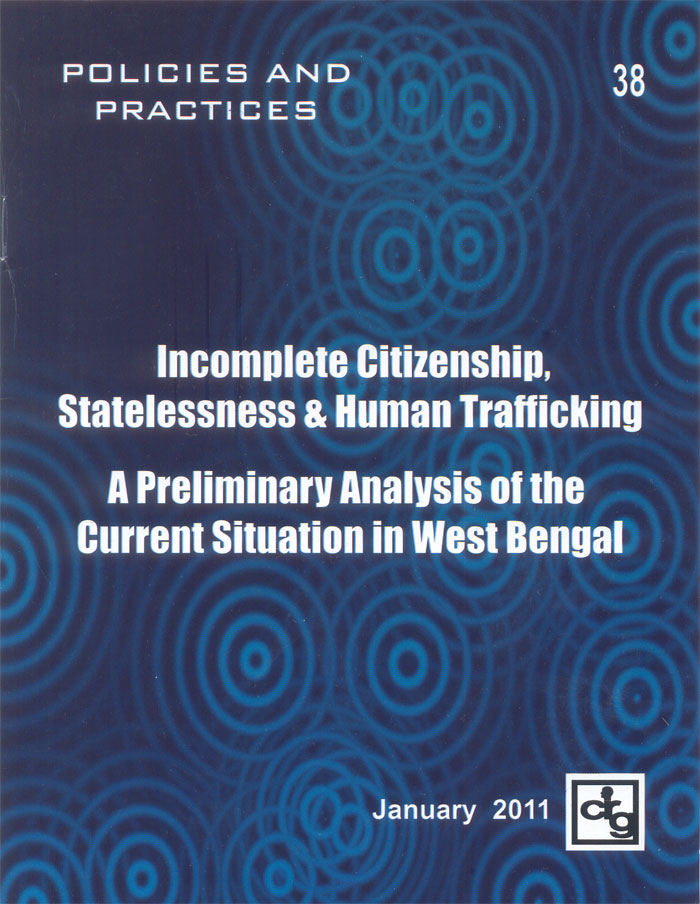 |
| |
|
|
|





